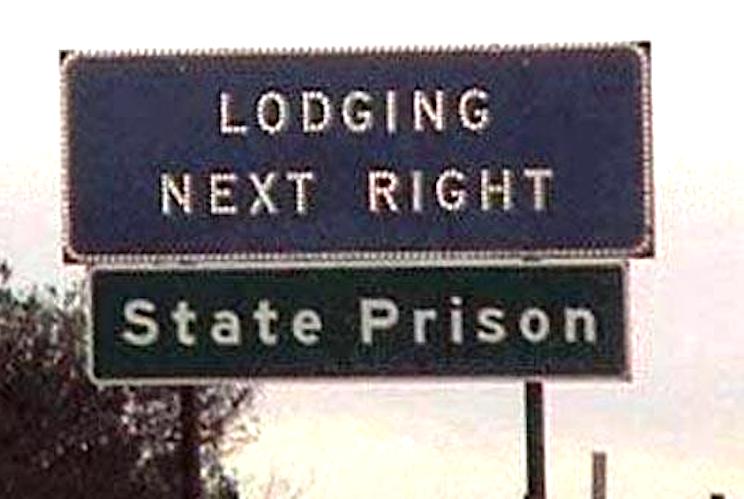

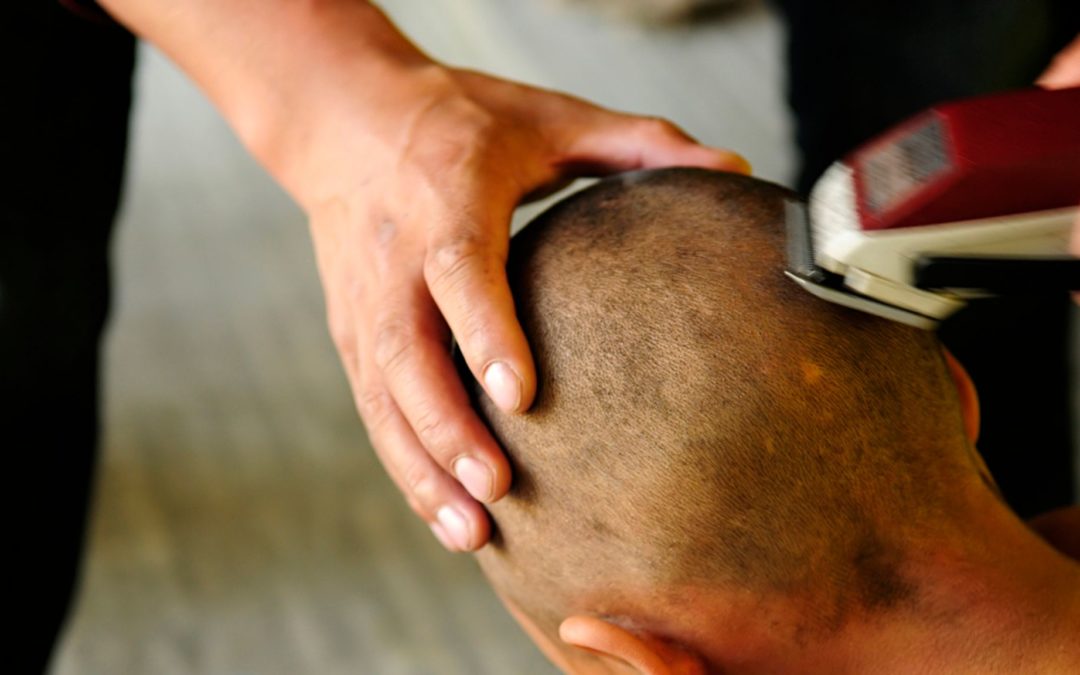
Who Decides Who Gets The Virus?
This is not a trick question, and there are no prizes for placing at the top of the list. But as I read articles from around the country in regard to the ever-increasing numbers of newly infected persons, and hear next-to-nothing about prisoners, it stands to reason that somebody is making those decisions. I have no delusions when it comes to the disbursement of the vaccine for this terrible disease — that according to mainstream media is taking the lives of 94 Americans every hour. Prisoners will in all likelihood be at the very end of that list. But here in the south, it appears there is some sort of Russian roulette being played out by the staff at the prisons.
The first wave was subtle and most didn’t know that what they were suffering was more likely than not actually covid 19. Of course the virus must have been working it’s way through the population since at least…2019. We may never know the full extent of the toll that the virus has taken on the prison population but we can see by the actions of prison staff and administration there is no concern for the safety of prisoners.
First of all they were shuffling inmates who tested positive in and out of dormitories with inmates who hadn’t yet gotten test results. This seemed to ensure that all of the inmates were exposed as quickly as possible. The staff has been directed to constantly harangue inmates to wear the apparently useless masks that were made by the laundry department, all the while not wearing their own masks. The coup de grace came this week however, when staff decided that it would be safe for the prisoners if they set up a makeshift, impromptu barbershop in the middle of the prison, outside — literally, with zero sanitation precautions, forcing inmates to shave their heads under threat of confinement. The clippers were not being cleaned. Not just properly, but not at all in between prisoner’s head shaves. If you remember, some of the first businesses to close were beauty and barbershops. And those were legitimate businesses complying with health and safety codes. In this makeshift torture line, hundreds of prisoners were being forced by threat to shave their heads to the scalp one after the other leaving open nicks, cuts, and wounds on their heads with no cleaning procedures in between prisoners. Florida Department of Corrections policy and procedure manual rescinded the section on ”barber and cosmetology sanitation” in 2003 and never replaced it. The rules and the policy and procedure manual does, however, provide the process for forced compliance to required hygiene. Amazingly enough, outside assembly line forced head shaves are not to be found in either of those controlling documents. When one individual mentioned that it was not procedure, he was told “I’ll f___ing show you procedure ho.’‘
Upon filing an official grievance with administration, the grievant was told that his complaint was too broad and vague. How specific must one say, ”I don’t want to be sick from the corona virus…again.” If you have loved ones, family, adoptees or friends in prison, and are not yet involved, get involved and stay involved. DEEPLY INVOLVED. You may save their life. Since after all, we don’t know who gets to make the decision of who gets the virus.
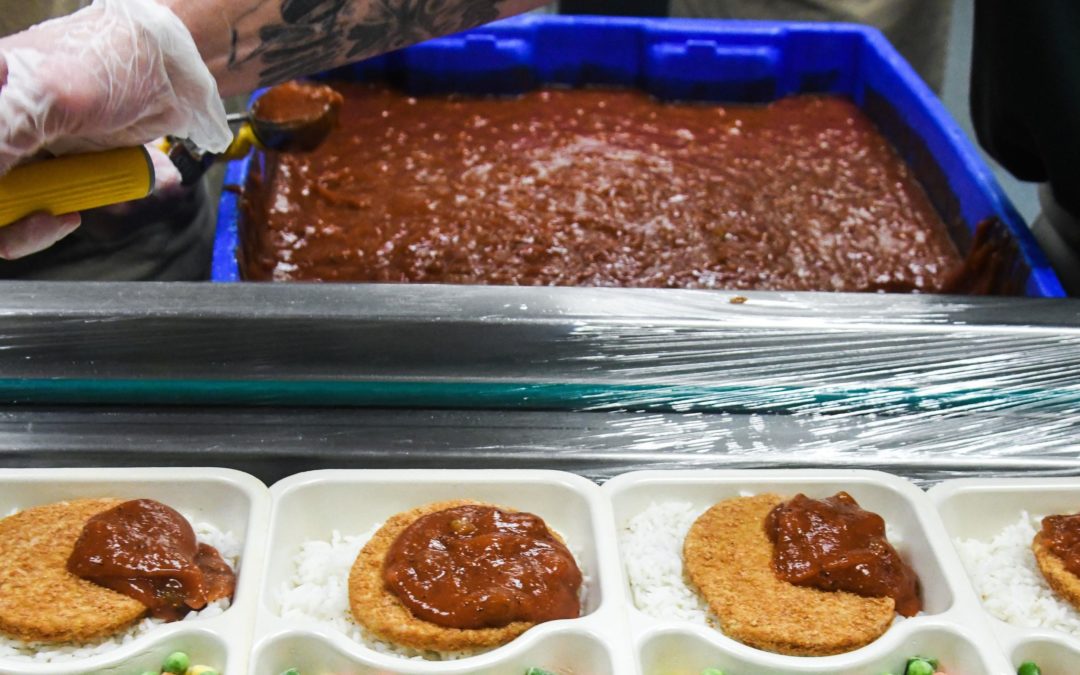
Correctional Industries: Valuing Profits Instead of Lives
For those of you that do not know what Correctional Industries (“CI”) is, I’ll give you a brief explanation. If you’re a member of the community or legislature, CI is touted as a saver of money and savior for the thousands of men and women within the Washington State Department of Corrections. CI is supposed to provide services at a reduced price, with improved quality, and the benefit of training incarcerated people with marketable job skills.
The reality is that CI is none of those things. Every operation CI takes over has a dramatic dip in quality (whether it is food, laundry, commissary, or textiles and manufacturing), a dramatic rise in costs (for taxpayers), and offers virtually nothing in the way of marketable job skills that would provide a sustainable wage after release.
For the purpose of this conversation I want to focus on CI and the operation here at Twin Rivers Unit where they operate the kitchen that provides food to the prisoner population. At this point, everyone in America knows about COVID (and my having written that word in this email will now cause this message to be flagged and screened before being sent out — which may take as long as two weeks), and the risks involved with having close contact with someone who has the virus.
For anyone associated with prison, we all know that staff are the ones who will bring the virus into this environment and infect us. Also known by anyone associated with prison is that (1) we receive horrifyingly deficient medical care at the best of times, and (2) when believed to have COVID, we are sent to be housed in the hole — where staff are abusive and treat us inhumanely.
In many ways DOC has been amazing about COVID. I have not been pat searched for months, nor has my cell been searched. Even so, staff do not social distance — even when yelling at us: “SIX FEET!!” They sit in the offices and remove their masks, eating, drinking, talking — coughing and sneezing. They sit maskless while sorting our mail — which they then wear their masks while handing out…even though the virus can remain on paper for over 24 hours.
But the most egregious show of disregard for our lives has been demonstrated by Correctional Industries. Amidst this pandemic, with everything that we know about the spread of COVID — and the risk that outside personnel pose for the prisoners within — CI has had officers pat searching every prisoner who leaves the chow hall after working their shift. Without a change of gloves, one prisoner after the next.
Only to discover that one of those officers has tested positive for COVID. Now, we have 121 prisoners on quarantine — many aged and with with underlying health conditions that increase their chances of death if they contract COVID.
With this act, Correctional Industries has shown themselves (as both an agency and the individuals who operate it) to be the monster we have long known them to be. In order to prevent the possible theft of an onion, or maybe some cheese, CI has been having prisoners pat searched for months — and finally our greatest fear is realized: That person is COVID positive.
The mail Gestapo will almost definitely stop this message from going out — there will be an attempt to silence my voice and censor this information. Nonetheless, when you do read these words, please consider them when and if you hear DOC telling you how well they’re protecting us. An onion has more value than our lives.

Urgent Announcement: Prisoners Eligible for Stimulus Checks
Prisoners are eligible for stimulus checks. See bottom of post for link to Facebook livestream event How to Get Stimulus Money for Incarcerated Citizens on Friday, October 9th – an in-depth presentation on how to apply for funds correctly.
Many of you have heard news about state and federal prisoners being eligible for stimulus checks. We’ve heard and seen lots of folks who believe this is only a rumor, warning that it would be fraudulent to apply.
We want to assure you that this is NOT a rumor. This is the result of a motion naming Steve Mnuchin, the Department of the Treasury, et. al., to stop withholding stimulus funds to incarcerated people. On September 24, a federal district court judge issued an order granting the motion. Read the order here.
We urge all our adopters to help their adoptees apply for their stimulus check – act FAST as the deadline is fast approaching.
People who did not file a 2018 or 2019 tax return are urged to file a claim with the IRS before October 15, 2020, in order to receive a payment. If the prisoner filed a 2018 or 2019 tax return or received Social Security Benefits or Railroad Retirement Board Benefits, they do not need to file a claim. However, if they did not file a 2018 or 2019 tax return and their income was below $12,200 (or $24,400 if filing jointly) in 2019, then a claim must be filed through the IRS’s website.
Prisoners without access to the internet can have someone file a claim for them, or they can complete a paper application. The instructions for a paper application are available here.
More information on the recent ruling regarding prisoners and CARES Act stimulus checks can be found here.
Note: This case also benefits people who were incarcerated both before and after March 27, 2020. If they were incarcerated both prior to March 27 and at least some time afterward, then the IRS may have denied them an Economic Impact Payment based on their incarcerated status. The Court’s preliminary injunction establishes that the IRS should not have done that. If they were only incarcerated before March 27, then they were unaffected by the IRS’s policy of denying benefits to incarcerated people, and should a have received a stimulus check. If they have not, they can file the same steps below to file a claim with the IRS, if eligible.
BREAKING NEWS: OCTOBER 5, 2020
IRS EXTENDS DEADLINE FOR FILING CLAIMS ONLINE TO NOVEMBER 21, 2020; IRS DOES NOT EXTEND DEADLINE FOR PAPER CLAIMS, WHICH ARE STILL DUE OCTOBER 15TH, 2020.
From National Right2Vote sawarimi.org:
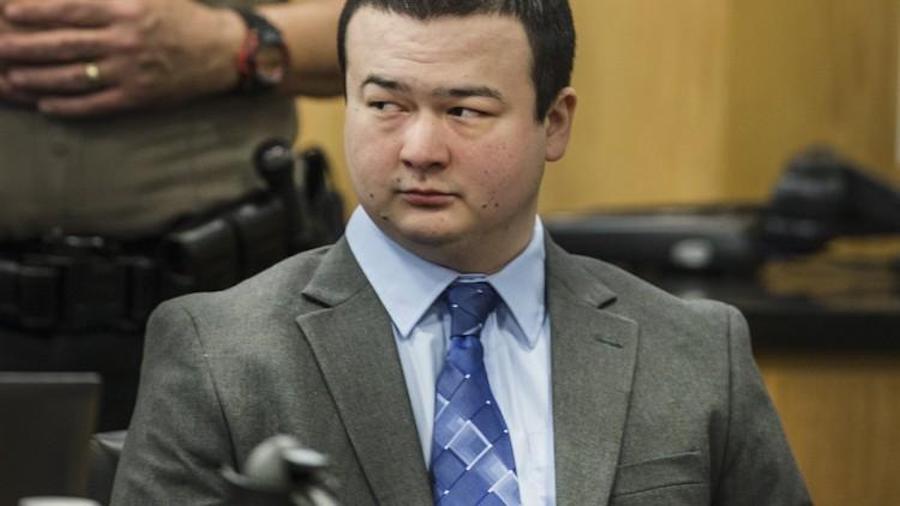
A Letter from Brandon Daniel – Death Row, Texas
From all accounts it would appear Padron acted well within his authority. He did not deserve to die. His daughters did not deserve to lose their father. But it also seems reasonable to conclude that Brandon Daniel did not act from forethought and planning. And that should have been something the jury was allowed to consider when given the “authority” to sentence him to death.
To whom it may concern,
My name is Brandon Daniel, and I am writing this letter to you from prison. With police brutality once again in the news, and legal reform a hot topic of discussion, I’m writing to tell you about my legal case, in the hope that I might be able to spread awareness about a common but little known condition that is responsible for sending others to prison, and perhaps to leverage your platform to gain support as well. My case involves the class of anti-anxiety medication called benzodiazepines, and it is one of the clearest examples of something called Paradoxical Reaction. I am hoping that you can help me. Let me fill you in on my story.
First, my background is relevant because it demonstrates that the event that led to my being here was not part of a pattern of behavior. I have no violence in my past, no felonies. I was a software engineer, I’m college educated, and I’m from a normal, middle-class home. Everything that happened that night was completely atypical and out of character.
The event took place at Walmart, so it was all captured on surveillance videos. You can see me stumble around the store for twenty minutes, dropping items and running into displays. I was clearly disoriented. A police officer was called, and he confronted me, tackled me, and in the chaos of the moment I shot and killed him. The video shows how hectic the situation was, it clearly was not a thought out and intentional act. It took place in the span of 10 seconds.
Subsequent blood tests revealed that I had 11 times the therapeutic dose of Xanax in my system, and these tests were taken seven hours after the event. With a half life of eleven hours, it is reasonable to assume that the amount of Xanax in my blood that night was extraordinarily high. Plus, as I later discovered, Asians metabolize Benzos faster than other populations and it stays in their systems longer. I am of Asian descent.
In addition to all of this, I was interviewed by police immediately after the event, while I was still highly impaired from the medication. Again, this interview was captured on video, and one can clearly see that I am suffering from the classic symptoms of Benzodiazepines. I had amnesia, stating several times that I couldn’t even remember what day or time it was. I was confabulating, giving different accounts of what happened, none of which turned out to be accurate. And I was experiencing chemical submission, complying with the detectives leading questions against my best interest. All of these are common side-effects of the Benzodiazepine class of pharmaceuticals, which includes the date rape drug “roofies.”
This aspect of my case sets me apart from other similar cases, I believe. My confused statements provide a window into my state of mind at the time, while in many other incidents we can only wonder what is going on in their mind.
After all of this, while awaiting trial, the jailhouse doctors put me on a cocktail of antidepressants: Zoloft, Celexa, Remeron, etc. During this time, I had several suicide attempts and I spent most of the time in observation cells, nearly catatonic. It is my belief that this common, secondary use of pharmaceuticals to medicate inmates awaiting trial, renders them complacent and fairly useless when it comes to contributing to their defense. This results in inmates who are resigned to their fate, able to be easily railroaded by the legal system, regardless of the merits of their case. Since most people who are first entering jail are, understandably, depressed, they are all too willing to accept this ‘treatment’.
In my case, my trial team was handpicked by the judge, they agreed to work for a flat fee, and they put on a subpar defense at the last minute. The public opinion surrounding my case was continuously manipulated by statements released from the pharmaceutical company. In many news articles, the fact that I was even on Xanax at all is never mentioned. I’ve learned that this is a common tactic used by the pharma industry, who often deploy ‘crash teams’ to these types of events to try and shift the blame away from their drugs. I was convicted and sent to Texas Death Row, where I am today.
Years into my sentence, I was finally able to get off of the psychiatric medications. Then I began to research the history of pharmaceuticals and I became aware of their role in many cases of violence, such as mine. In fact, this is a well-documented symptom of Benzos that’s sometimes-called Paradoxical Reaction or Rage Reaction. It is also related to the phenomenon called Homicidal Somnambulism, or sleep-walking murder. Many other cases can be found in the medical literature, and these types of drugs have come up in the toxicology reports of several ‘mass shooters’, including the Las Vegas shooter and the Southerland Springs Church shooter. Over the past two decades, prescriptions for Benzos have skyrocketed and so has the number of overdoses, which has risen eightfold since 1999. This time period also coincides with the epidemic of mass shootings in our country. It is certain that the prison population over-represented by Benzo users who are unaware that this drug contributed to their situation. This is a major reason for my speaking out, to inform others about this possible influence on their crime.
Since my trial, my lawyers and I have accumulated a massive amount of research proving that this is not a one-off event, but is a well known phenomenon in the medical community that has been actively covered up by the pharmaceutical industry for decades. I have scientific articles, expert evaluations, and even an internal FDA study that highlights the extreme number of violent episodes associated with Benzodiazepines compared to other drugs. This FDA study was not released to the public and was only acquired through FOIA requests put out by lawyers.
Now, my goal is to use my story to help expose this issue. Books have been written about pharmaceutical-induced violence, but I really feel that my case is the clearest example of such an event. By reaching out to you with this letter, I am hoping to use your platform to help spread my story, to garner support from the activist community, and to make contacts with any lawyers, expert witnesses, or fundraising apparatuses that might be able to help. My friends and family have compiled information about my case on a website: supportbrandondaniel.org. I am asking that you please post about my site on your social media accounts and link it up to your website. Any other exposure or resources would be very much appreciated.
I really hope that you can help. Please contact me at the address below. I look forward to hearing from you, thank you for your consideration.
Sincerely,
Brandon Daniel #999589
Polunsky Unit
3872 FM 350 South Road
Livingston, TX 77351
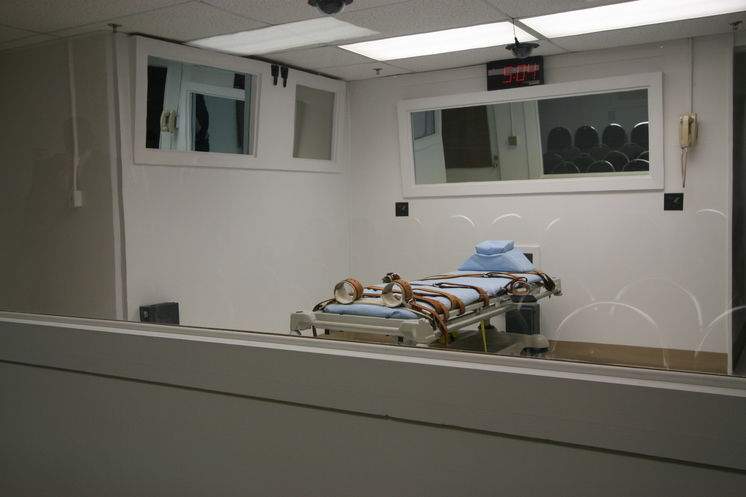
Peace
Another person’s death, murder by the state, brought someone peace? Wow. I’ve heard it before, so it shouldn’t surprise me, but every time I hear that it does.
It makes me step back and wonder how anyone can get satisfaction from the suffering and death of any living creature, much less your fellow man. But Friday morning, it was once again on the news. A woman saying that she found peace in watching Bobby be put down by the state. How does another person dying in front of you, fulfill your life and bring peace? And the woman wanted him to look her in the eyes as he’s dying?! Her words, not mine. I don’t think I could, or would ever want to do that. Look a helpless individual in their eyes and watch the fear, misery, and confusion as their life is being taken from them. Even in anger and total rage, if that person looked me in the eye, helpless, my goal would be to stop, and stop anyone from harming them. Not watch or participate in their misery and death.
So when I hear that, it boggles my mind, how ‘any civilized person’ can find peace, through the death of another. I understand anger and hurt, and when Connie was murdered on March 24, 1997, I was devastated! I know and understand the desire for vengeance. And it took a few years for it to pass. Connie’s murder still hurts me to this day. But the desire for vengeance faded long ago.
Seeing and being on both sides of the vengeful heart still doesn’t help me see how anyone can find peace through the cold and calculated murder of another individual. And for a helpless individual to look me in the eyes as their life is being extinguished. No I can’t in any way, shape, or form, comprehend why or how someone can get pleasure, relief or find peace through such an evil act. And those who do, need lots of prayer and psychological counseling. True peace can never be found in such an inhumane and brutal act.
God bless you
In peace, love and friendship, Ronnie

Correctional Staff: Harbingers of Genocide
From Inside the Wire
Local and national news has carried coverage informing us that roughly 100 incarcerated individuals at the medium security unit (MSU) of the Monroe Correctional Complex “rioted” last night.
We should all vehemently reject the application of the word “riot.” It is not a “riot” when correctional staff are trying to murder us — and the face of every unmasked correctional staff is the face of someone attempting to murder all prisoners. It is not a “riot” when there is a clear and direct threat to our lives — it’s called survival. For the men at MSU it’s too late. The deadly COVID-19 virus is among them — and the horror of death moves inexorably towards everyone of them.
MCC is infamous in Washington for poor and nonexistent medical care — with 7 prisoner deaths the last 3 years — and everyone of the incarcerated individuals at MSU knows this. In fact, every prisoner at MCC knows that “medical” care is a farce — touted to the public as a real thing, but for us it’s part of modern mythology.
Q13 news just carried an announcement from Gov. Inslee. DOC will be partnered with other state agencies on how to limit the spread of COVID-19 within Washington prisons. What about the single incontrovertible fact that the focus should have been on stopping COVID-19 from getting into our prisons?
Had Gov. Inslee (and DOC Secretary Sinclair) taken the threat to our safety seriously before the event last night, then staff would have been required to wear masks at all times while within a Washington prison. I woke this morning to the face of officers and medical staff without masks on. These are the faces of death.
I hope that it’s not lost on everyone that last night DOC used weapons designed to target the respiratory system. “Tear gas” (which was more likely OC pepper spray) causes violent coughing, spitting, and nasal mucus production. So. Rather than communicate to help reduce the fears these men were/are overwhelmed by, DOC used weapons in an attempt to crush their most natural instinct: the desire for life.
I’m not usually a gambler, but I’d bet it all on this: when DOC staff went among those coughing, choking, spitting, and snot dripping prisoners last night, those fuckers wore masks.
Change to Jpay Stamp Services
Announcement from Jpay:
| Dear JPay Customer,
As of today, April 7, 2020, you will only be able to purchase JPay Stamp packages for the state where your incarcerated loved one is located. If you communicate with incarcerated individuals located in multiple states, then your account will display multiple state JPay Stamp balances that are valid only for use to communicate with incarcerated individuals located in those specific states. All JPay Stamps purchased prior to today will be designated as “universal” JPay Stamps that can be used for any incarcerated individual at any agency in your account. Those universal JPay Stamps will be used first, and any new JPay Stamp purchases will be used specifically for the designated state. If you are a JPay mobile app user, please make sure you update the app on your smartphone to the most recent version (20.2). After today’s technology release, both iOS and Android users should see a notification to upgrade when you open the app, but if for some reason that notification does not appear, make sure you go to the Google Play Store (for Android) or the App Store (for iOS) and upgrade the JPay mobile app to the most recent version to ensure the application is working properly. We’ve updated our Terms of Service for Stamp Purchases, Email and Mobile Terms of Service and Privacy Policy to reflect this, in addition to certain other changes we have made in those terms of service. You may access these by clicking HERE. |
| Warm regards, Your JPay Team |
The Impact of Sars-cov-2, also known as Covid-19 on Prison Inmates
|
|
|
|
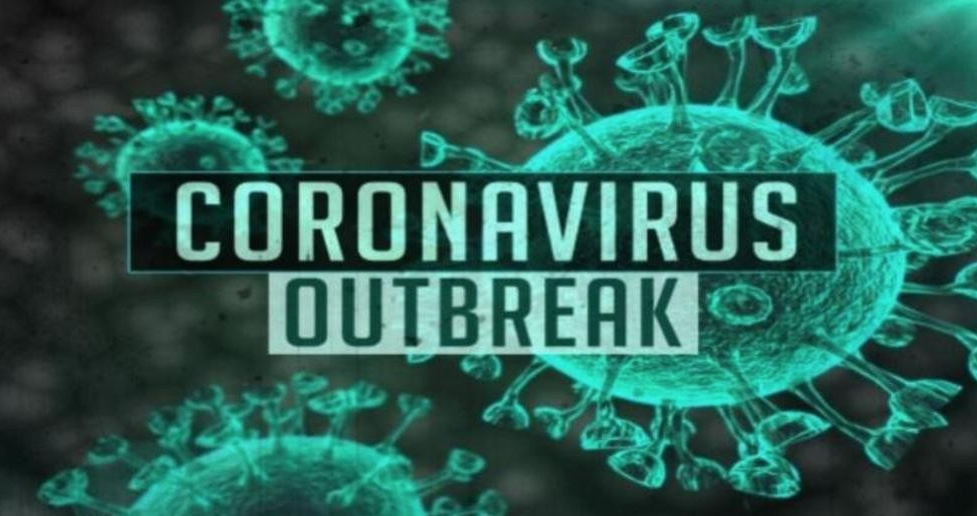
Jpay Changes in Response to Visiting Suspensions
The Federal Bureau of Prisons (BOP) and many state DOC’s have restricted facility access to all non-essential personnel to reduce the chance of staff or incarcerated individuals contracting the virus. This unfortunately includes in-person visits from family and friends.
Three states have implemented changes to their Jpay services to help maintain contact between incarcerated loved ones and their families during this time.
Louisiana Department of Corrections has extended the maximum phone call duration to one hour. This new maximum phone call duration goes into effect immediately and will continue until further notice.
Florida Department of Corrections have worked together to provide one free video communication. Beginning today, Friday, March 13, 2020 through April 5, 2020, one free video session credit will be provided into your JPay account. This update will display when you schedule on JPay.com or the mobile app.
Ohio Department of Rehabilitation and Corrections have worked together to provide one free 15 min video communication each week and reduced pricing for additional video communications will start at 4PM. Beginning Friday, March 13, 2020, one free 15 min video session credit will be available in your JPay account. The free video session credit will be replenished every Friday, but only if the current free visit was used. You must be an approved visitor with the Ohio Department of Rehabilitation and Corrections to schedule a video visitation session. Any additional video sessions will be available for 15 minutes, and the cost will drop from $9.90 to $3.50 starting at 4PM. The calls are being shortened to allow for more loved ones to be included on the schedule each day. This update will display when you schedule on JPay.com or the mobile app. The reduced pricing and free video session credit will begin on March 13th and remain in place until further notice.

